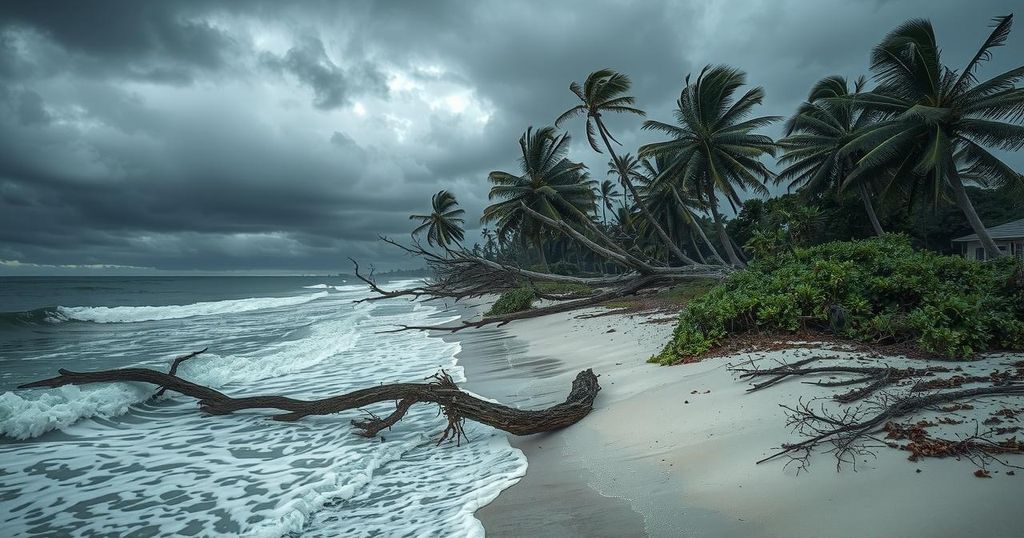Cyclone Chido hit Mayotte on December 14, bringing devastating winds over 200 km/h, causing extensive damage, and resulting in a national mourning declaration. The cyclone generated torrential rainfall and destructive waves, leading to significant loss of life, although advance warnings had been issued. Understanding the impact of climate change on such events remains unclear according to meteorological sources.
Tropical cyclone Chido struck Mayotte on December 14, delivering wind speeds exceeding 200 km per hour and gusts over 225 km/h. This event marks the most powerful storm to impact Mayotte in at least 90 years, as reported by Météo-France. The cyclone was accompanied by torrential rainfall totaling 176 mm within 12 hours and dangerously high wave heights, averaging more than 5 meters. The storm’s intensity even damaged some of Météo-France’s own observational structures.
In response to the devastation, French President Emmanuel Macron declared a national day of mourning. An extensive emergency and relief mission was initiated following early reports suggesting that hundreds of residents may have perished on the small island, known for its vulnerability to such severe tropical cyclones and prevalence of informal housing. The loss of life transpired despite timely warnings issued by Météo-France over 50 hours in advance.
Mayotte, a small island in the Indian Ocean, is relatively unaccustomed to experiencing such intense tropical cyclones. Prior to Cyclone Chido, meteorological analyses suggested that the 2024-2025 cyclone season would commence earlier than usual, with forecasts indicating above-normal activity for the region. In previous seasons, impactful systems only emerged in January. Understanding the changing patterns and intensity of cyclones is critical, though the connection to climate change remains uncertain.
Cyclone Chido’s unprecedented impact on Mayotte has prompted significant concern and a national response, highlighting the island’s vulnerability to strong tropical storms. While accurate warnings were issued, the immense loss of lives underscores the need for improvements in building resilience against such natural disasters. Ongoing studies will be crucial to understand the unpredictable behavior of tropical cyclones and their potential links to climate change.
Original Source: wmo.int






